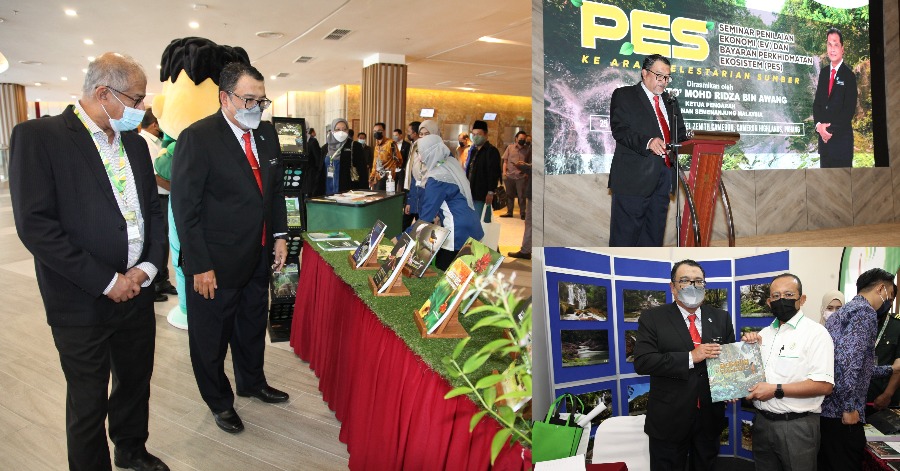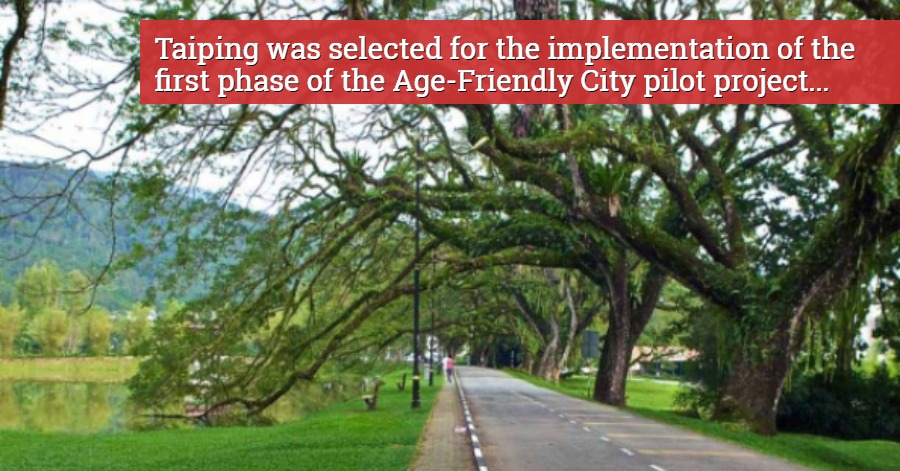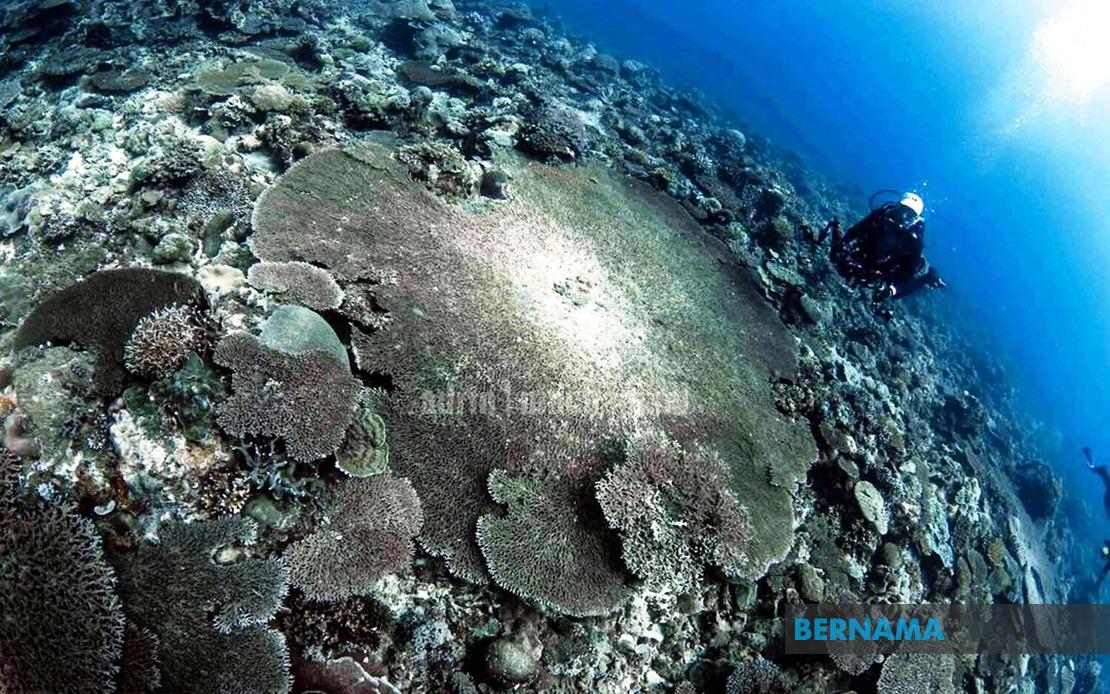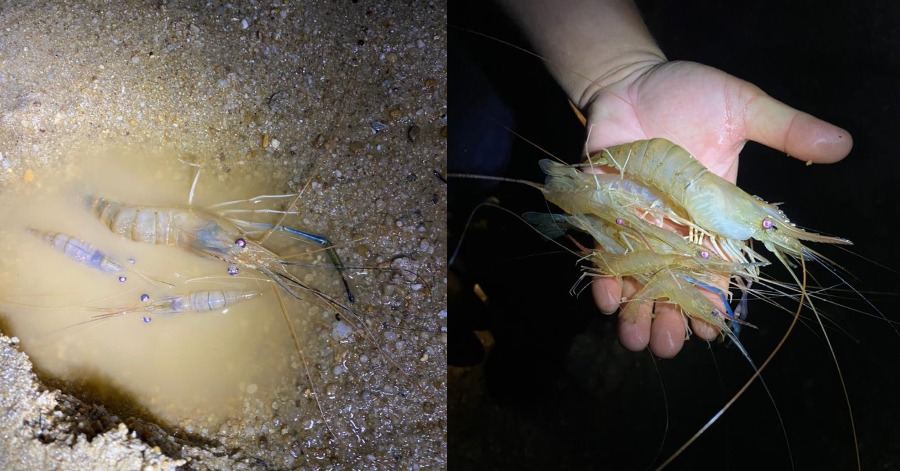PAHANG, 25 Nov, 2021 — The Improving Connectivity in the Central Forest Spine (IC-CFS) project launched a seminar today on the Economic Value (EV) and Payment for Ecosystem Services (PES). The seminar involved several agencies, including Jabatan Perhutanan Semenanjung Malaysia (JPSM), University Putra Malaysia (UPM), Forest Research Institute Malaysia (FRIM), Terengganu Water Resources Department (LAUT), and Perak State Parks Corporation, all of whom presented research findings regarding EV and PES in joint participation. With funding from Global Environment Facility (GEF) and support from the United Nations Development Programme (UNDP), this seminar will kickstart the sustainable financial planning within the IC-CFS Strategic Results Framework.
In realizing the IC-CFS project’s mission to diversify funding and financial allocation for forest conservation efforts, the seminar seeks to spearhead innovative financing solutions for the Central Forest Spine (CFS). With over RM85 million allocated by the government in the 11th and 12th Malaysian Plan for Central Forest Spine, the funds will be optimised and channeled annually to the respective CFS areas. The recently announced ecological fiscal transfer involving compensation plan for states with gazetted forest areas for water catchment purposes is a prime example of the financial allocation.
To highlight the significance of the biodiversity and ecosystem services, IC-CFS has developed an economic valuations system for the Central Forest Spine which was then integrated into a streamlined decision-making process. Findings from IC-CFS implementing partners, the Department of Wildlife and National Parks (DWNP), State Forestry Departments, and the Forest Research Institute Malaysia (FRIM) on the Economic Value (EV) and Payment for Ecosystem Services (PES) may reduce the obstacles in raising funds for conservation within several areas of development and industry, especially on the crucial watershed value of the Central Forest Spine.
“Under IC-CFS, the Forestry Department of Peninsular Malaysia has worked together with the consultant of the IC-CFS Project to identify potential sources of value in the forest ecosystem, including water, carbon sequestering, non-timber forest products, ecotourism, and more,” said Dato’ Zahari Ibrahim, the National Project Director of IC-CFS Project. “We believe that this process of identification is crucial for the success of the local PES scheme. This method of forest resource management will prevent further irreversible losses of our ecosystem and biodiversity,” he added.
PES enhances the value of forest that will remain standing without the need to exploit the forest using destructive approaches. The implementation of the PES scheme also adds value specifically for the surrounding local community. Their involvement and participation in the forest ecosystem has resulted in the generation of economic opportunities particularly in the realm of ecotourism, further demonstrating the forest ecosystem’s potential as a long-term strategic asset for the state and nation. Due to its noteworthy potential, the government has allocated RM15 Million for this direction from Budget 2022, under the project of Natural Resources Ecotourism Empowerment Program towards the development of the local community. The seminar also shed light upon the development and implementation methods of existing ecotourism packages in National Park, Kuala Tahan, Pahang to be adapted into future PES implementation.
The Forestry Department of Peninsular Malaysia (FDPM) will be presenting a case study on the Sustainable Financing Mechanism For Sustainable Forest Management and a case study on the Ulu Tampit Waterfall, Janda Baik, Pahang presented by FRIM. Extensive findings of several agencies will be used to drive alternative revenues especially for the hydropower stations managed by smallholders in forest areas.
The implementation of the Payment for Ecosystem Services would require good synergy between the hydropower producers and state authorities; with shared financial revenue for the Forestry Departments to implement and sustain the Central Forest Spine Master Plan (CFS-MP).
About Improving Connectivity: Central Forest Spine (IC-CFS)
The Improving Connectivity in the Central Forest Spine (IC-CFS) is a project seeking to conserve biodiversity and ecosystem services in the priority forest landscapes within the CFS.
Incepted in 2014, the project is led by the Forestry Department of Peninsular Malaysia in collaboration with the Department of Wildlife and National Parks (DWNP) and Forest Research Institute Malaysia (FRIM) with the support of The United Nations Development Programme (UNDP) and the Global Environment Facility (GEF) grant.
The main objective of IC-CFS is to strengthen the federal and state capacity in executing the CFS Master Plan to enhance forest connectivity and law enforcement against wildlife and forestry crimes. The project is composed of three components namely planning, compliance monitoring, and enforcement framework for integrated forest landscape management; sustainable forest landscape management of three priority forest landscapes within the CFS; and diversification of financing sources for conservation.
About Central Forest Spine
Established under the 2005 National Physical Plan (NPP), the Central Forest Spine (CFS) serves as the backbone of the Environmentally Sensitive Area (ESA) network in Peninsular Malaysia. It comprises four main forest complexes; Banjaran Titiwangsa – Banjaran Bintang – Banjaran Nakawan; Taman Negara – Banjaran Timur; South-East Pahang, Chini and Bera Wetlands; and Endau Rompin National Park – Kluang Wildlife Reserves.
Spanning over 5.5 million square hectares, the CFS harbours critical mountain watersheds and catchment areas that supply water for 90% of the population. Home to a highly diverse range of flora and fauna species including the endangered Malayan tiger subspecies and Asian Elephant, it provides climate regulation, soil protection, and carbon storage.
Learn more at https://www.ic-centralforestspine.com.my/ or follow us on Facebook and Instagram.









Leave a Comment